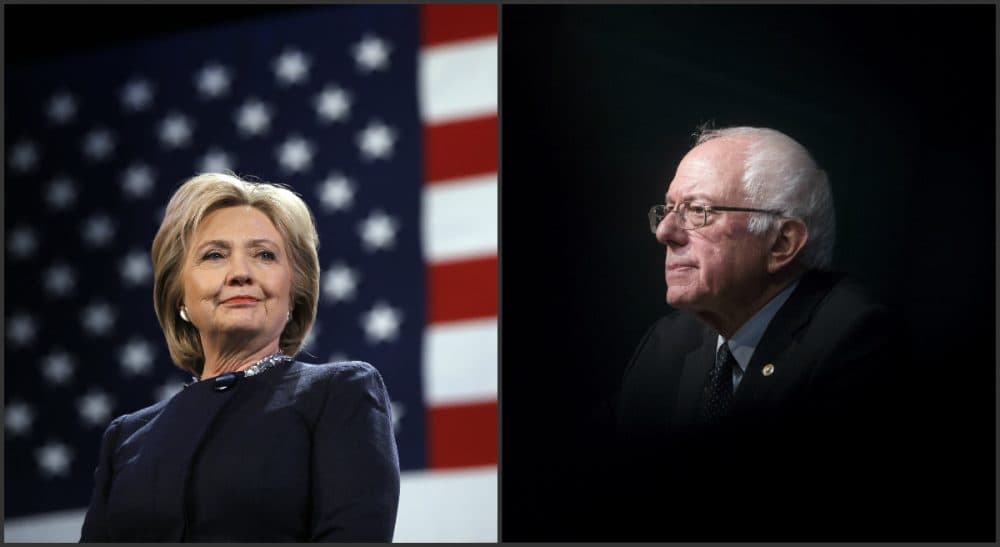Advertisement
Why This Veteran Will Cast His Super Tuesday Vote For Bernie Sanders

For a time during the summer of 2012, American service members in Afghanistan were being killed at a rate of one per day.
As a reservist mobilized for duty with the coalition’s counter-improvised explosive devise task force, I had a front-row seat to the dying, to the incessant drumbeat of tactical reports and makeshift combat-zone memorial ceremonies.
Those of us who were there also saw other things first-hand: immense expenditures on useless projects, such as equipping the Afghan army with bomb disposal robots, without a parallel plan to train them in their maintenance or to provide them with replacement parts; gigantic salaries paid to contractors; and endless rewriting of the strategy for a war that had already dragged on for 11 years. It was a visceral, personal lesson in quagmire.
Secretary Clinton deserves credit for backing away from her Iraq War vote, but she seems to have learned nothing from its disastrous fallout.
There is an assumption in Washington to which the establishments in both parties subscribe: American military power is the antidote to all the world’s problems. This notion is so deeply entrenched that all the empirical evidence to the contrary has done nothing to shake the conviction of those engaged in making foreign policy.
Secretary Clinton deserves credit for backing away from her Iraq War vote, but she seems to have learned nothing from its disastrous fallout. She supported the intervention in Libya, which took place without congressional authorization and has left anarchy in its wake; she has been a leading voice among those calling for the U.S. to take a more active role in Syria; and she has backed the Obama administration’s expansive drone war, which has served as an effective propaganda tool for terrorist recruiters.
Clinton’s supporters tout her foreign policy acumen. In large part it is how they distinguish her from her rival. Senator Sanders, they argue, dodges foreign policy questions and lacks in-depth knowledge of and plans for dealing with the international crises of our day. What that really means is that Senator Sanders has not bought into the establishment’s assumptions about American power.
If there is one thing that a decade and a half of military adventures in the Middle East should have taught our leaders, it’s humility. Time and again, military intervention in the region has failed to achieve its goals and left in its wake a series of unintended consequences.
Our leaders repeat these mistakes because force seems to represent an easy panacea. Congress has all but ceded its war-making authority to the executive branch, and, rather than admit that there may be things beyond the control of the most powerful country in the world, the impulse is to take action without serious reflection on its potential efficacy. Clinton falls neatly into the cabal of beltway insiders who jump to military solutions when a problem appears to be otherwise intractable.
One need only to visit Secretary Clinton’s website to see that she is content to condense complex foreign policy issues into simple platitudes. She promises to: “Keep America safe and secure by defending our core values and leading with principle;” and: “Defeat ISIS and global terrorism and the ideologies that drive it.” There is little in those proclamations to separate Secretary Clinton from anyone remaining in the Republican primary race.
Compare this to the first line of Senator Sanders’s War and Peace webpage: “We live in a difficult and dangerous world, and there are no easy or magical solutions.” This is a markedly realist take for someone accused by his detractors of starry-eyed idealism.
Senator Sanders has not bought into the establishment’s assumptions about American power.
I am tired of hearing the Democratic establishment lecture Sanders supporters on his lack of foreign policy experience and achievement. Sanders has steadfastly opposed military entanglements throughout his time in Congress, while Clinton’s background is littered with support for failed overseas adventures, the burden of which has fallen disproportionately on the small percentage of our population who serve in the military and on their families.
That is why I will be casting my vote for the only candidate whose record demonstrates a penchant for responsible and judicious stewardship of American power: Senator Sanders.
Clinton’s supporters like to say that her record speaks for itself. On that point, we are in agreement.
